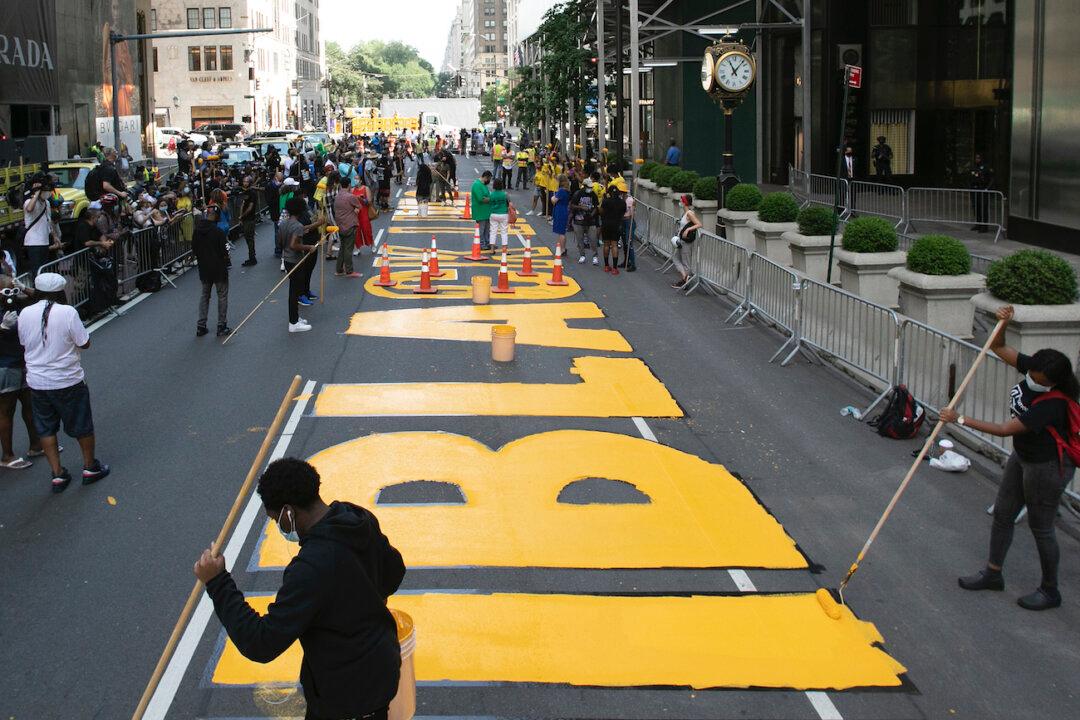Kansas City officials on Aug. 6 adopted a resolution that would allow Black Lives Matter street murals to be painted at six locations in the Missouri city.
The resolution, introduced by Kansas City Councilman Eric Bunch, will see Black Lives Matter murals painted on six streets in the city. They will be painted by local artists and volunteers with the backing of city staff and local organizations.





